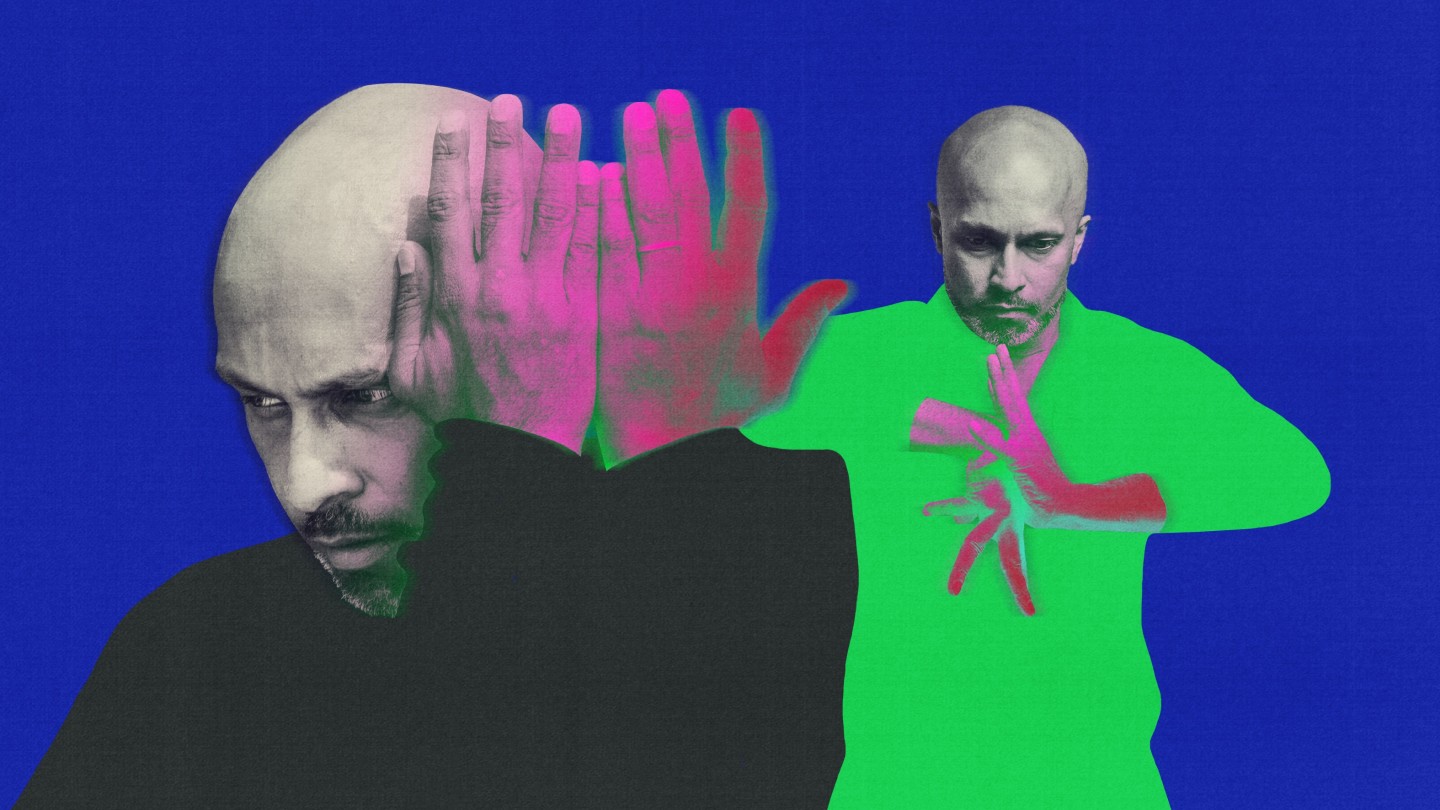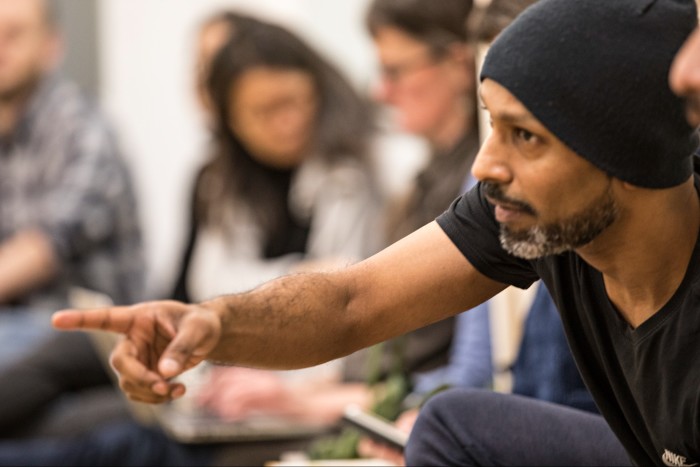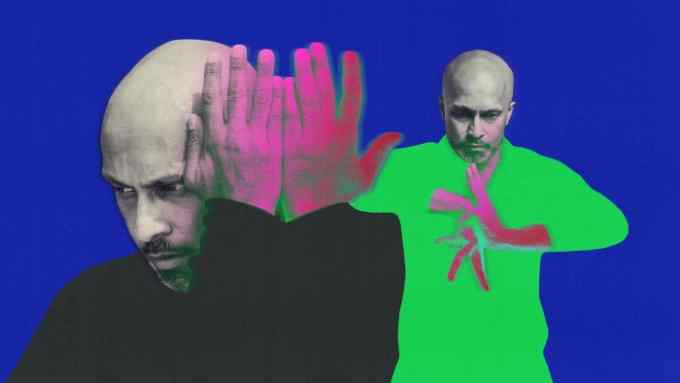Akram Khan on Brazilian jiu-jitsu and his beautiful midlife crisis

Roula Khalaf, Editor of the FT, selects her favourite stories in this weekly newsletter.
Before lockdown, I felt my passion for training becoming depleted – I’ve trained intensely in dance since I was a small child, and I’m 47 now. But I made a documentary called Extreme Combat: The Fighter and the Dancer, and it was a real eye-opener into the world of mixed martial arts and violent sports. There was one particular form that really attracted me, because there was a huge conceptual and psychological approach – it was like a chess game. It was Brazilian jiu-jitsu. I decided to study it, and became obsessed. It’s been my passion for the past year and a half, what I spend all my spare time and money on – my emotional, psychological and physical saviour, really.
Brazilian jiu-jitsu developed when a Japanese master went to Brazil just over 100 years ago, and a couple of brothers transformed it. The aim was: how do we make this form not just beautiful, but usable in a practical situation? It’s a grappling form, predominantly on the ground, and it’s about being able to pin parts of the opponent’s body. I was lucky enough to take one-on-one classes throughout lockdown in my dance studio in my back garden. It was so exciting to learn something new. I often refer to what I call “the pleasure of drowning” – that sense of being in the absolute unknown, a total novice. I did think: “Well, I’m pretty OK at dance – I can’t be that bad with another form of movement.” But I’m useless!

I have two masters, Lucas and Tom. I wouldn’t call them my friends. I love them and I hate them, because I’m not used to being criticised in such a harsh way. Lucas in particular is very tough. To have no compliments, ever…! I’m crying to my wife after the session, saying: “He didn’t say one word! He looked at me disgusted!” But he reminds me a lot of myself, because I don’t give compliments easily – so when he does give one, you know it’s of great value. Tom is different: he doesn’t necessarily give compliments, but he’s extremely encouraging. It’s nice having both approaches. I also love that they vaguely know that I’m a dancer, but they don’t know the calibre. I have this voice in my head, which goes, “God! They talk to me like I’m a beginner! If only they fucking knew who I was!”
Even though jiu-jitsu literally means “gentle art”, when I’m fighting my first thought is, “How do I dislocate his shoulder? Break his knee joints? Put him to sleep?” (Basically, choke him out.) Although you do “tap” your opponent to signal surrender before it goes that far. It’s as violent as you want it to be. But if I just studied martial arts on a physical level, it wouldn’t fulfil me. With Brazilian jiu-jitsu, you don’t only have to be in a studio – you can also do homework, study the moves and realise where you’ve gone wrong. It’s like dance in that respect, and I think that’s why I was drawn to it. It’s definitely made me a better dancer – stronger and more flexible.

I think I was also attracted to it because it’s one of the few forms that was designed for smaller opponents against bigger ones – and I’m pretty small. It’s amazing how often smaller black belts destroy huge, athletic opponents. It’s so much about rhythm, about understanding pressure points, about angles, so if you have the knowledge and you are able to execute it, you’re superior. Of course, weight and strength plays a part: with a bigger person on top of me, I have to work harder. But the knowledge itself will allow you a means of escape. You could end up rolling with a builder who weighs 250 pounds – although I try to avoid that.
My kids take classes too, and I do roll with them. My daughter is eight – she’s really good at it, and she nearly choked me out to the point where I lost consciousness. I said, “I was tapping!” She replied, “Well, I didn’t hear you, Papa. You should talk louder.”
Tom is “Gi”, by the way, which means he wears the traditional martial arts garments, and Lucas is “No Gi”. I’m constantly looking for nice, cool outfits of both types. My wife just says, ‘‘Look, dear. I know you’re into this, but getting three different colour Gis won’t make you better.” Broadly though, she thinks it’s a brilliant, beautiful midlife crisis, and that it’s far better than me buying a convertible with only two seats.

Comments